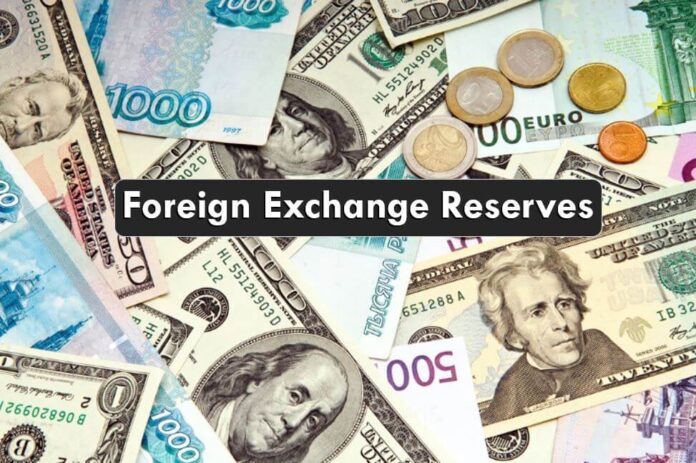The Central Bank of Nigeria (CBN) has released data showing a dip in foreign reserves by $971.4 million.
The drop was recorded in the first quarter of 2022 despite 49 per cent rally in crude oil price.
Accordin to the CB data, the country’s foreign exchange buffer dropped to $39.55 billion as at March 31, 2022 compared to $40.52billion it commenced 2022 amid steady increase in global oil prices.
In January, the external reserve had dropped by $478.95milion to $40.04billion, while in February, it depreciated further by $121.45million to $39.98billion from $39.86billion.
However, in March 2022, the external reserve moved from $39.86billion to $39.55billion as at March 31, 2022, representing a decline of $317.8 million.
Analysis of the CBN’s data showed that the external reserve was at a threshold of $40billion in January and moved to $39billion February 2022.
The global oil prices recently reached record high as oil and gas costs soar amid fears of a global economic shock from Russia’s invasion of Ukraine.
Further analysis of the CBN data showed that daily crude oil price has gained 49 per cent to close as of March at $119.06 per barrel from $80.07 per barrel it opened in 2022.
Oil jumped to $128.27 a barrel as of March 9, the highest level for almost 14 years.
Experts have expressed that the current crisis in Niger-Delta relating to oil theft might be responsible for dwindling production, a major contributing factor impacting on external reserves growth on the backdrop of increase in global oil prices.
They noted that the increasing CBN’s intervention in the foreign exchange market is also a contributing factor.
The Group Managing Director/CEO of NNPC Limited, Mallam Mele Kyari had recently disclosed that Nigeria oil production crashed to 1.15 million barrels per day due to rising cases of oil theft and pipeline vandalism in the Niger Delta.
He added that the increasing rate of vandalism has caused massive disruption in oil production, noting it was the worst the country has ever witnessed.
The Former president Chartered Institute of Bankers of Nigeria, President, Prof. Segun Ajibola attributed the dwindling external reserves to the crisis in Niger-delta and sustained foreign exchange interventions by CBN.
He said: “Nigeria is having a peculiar oil theft challenge in the Niger-Delta and that is affecting our daily production quota. Government is still trying to confront pipeline vandalises, causing confusion at the points of production which is expected to have a negative impact on the country’s ability to meet the OPEC quota allocated to Nigeria.
“Most of Nigeria’s oil transactions are paid for most times in 90-day times- it is called forward transactions. In some cases, we go into a swap agreement whereby those that refined products for Nigeria are paid back through crude oil. It means we are not selling but exchanging through crude oil.
“When we do forward transactions, the money does not reflect in the external reserve immediately. Those are the complicated issues in the global market that most people will not understand. Common man on the street will expect the steady hike in global oil price to impact on our external reserve but the underline challenges might delay it.”




